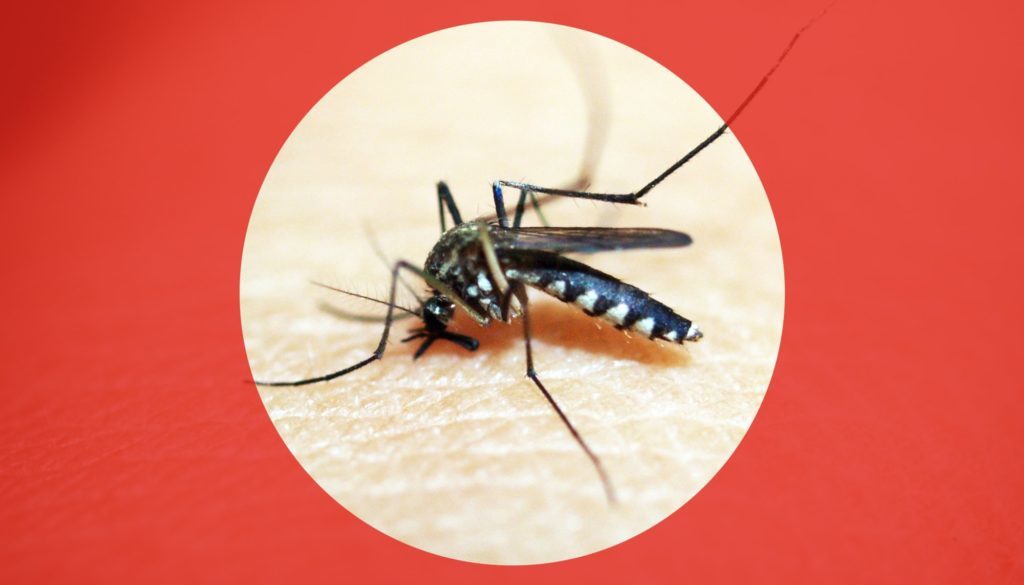Time to Prepare, Be Dengue Aware!
Many clients seen at TravelSafe clinic have a lot of questions about dengue fever. What is it? Am I at risk? How do I know if I have dengue? Can I die from it? Is there a vaccine for dengue? There are currently several outbreaks of dengue fever worldwide, so here are answers to the most common questions asked about dengue.
What is dengue fever and how is it spread?
Dengue fever is a virus spread through the bite of an infected mosquito. The virus is spread by the Aaedes species of mosquito which mainly bites during daytime hours. Peak biting times are the first 2-3 hours after dawn, and mid-to-late afternoon (although risk can be continuous indoors or during overcast days). Dengue can also be transmitted from mother to fetus during pregnancy, or to an infant through breast milk. There is no evidence of sexual transmission, as there is with Zika virus. Transmission through blood via transfusion is also possible. There are 4 types of the dengue virus. Someone who recovers from one of the 4 types of dengue will have lifelong immunity against that type but can still be susceptible to getting one of the other 3 types.
Am I at risk for Dengue?
Dengue is a risk in more than 100 countries worldwide, causing an estimated 50 million cases per year. Dengue is widespread across most tropical and subtropical countries of Asia, the Caribbean, the Americas, South Pacific, and the Indian Ocean islands. It has also emerged in Africa in recent years, becoming more common in East and West African countries. It is largely a risk in highly populated urban areas as the Aedes aegypti mosquitos prefer to rest indoors in close contact with humans. Dengue is the most common cause of fever in travellers returning from Southeast Asia, the Caribbean, and Latin America.
Where are the current outbreaks of Dengue?
In 2019 there have been reported outbreaks in Kenya (Mobassa), Jamaica, Vietnam (mainly Ho Chi Minh City), Cambodia, Laos, Réunion, Palau, Oman, Angola, and Cuba. These countries report a significant increase over average numbers of cases.
What are the symptoms?
Most dengue infections (around 75%) do not cause symptoms. If symptoms occur, they usually begin 2-5 days after infection (more rarely up to 7-14 days after infection). Symptoms include sudden high fever typically lasting 2-7 days, rash, muscle, abdominal, joint and back pain, headache, pain behind the eyes, nausea, vomiting and weakness. Dengue is often referred to as “breakbone fever” because of the severe joint and muscle pain it can cause. Most people improve but more severe symptoms can then develop including persistent vomiting, severe abdominal pain, bleeding from the gums, difficulty breathing, and signs of shock which can potentially be fatal. This is known as dengue hemorrhagic fever and is more common if a person gets infected with dengue a second time.
What is the treatment?
There is no specific treatment for dengue. It is important to stay well hydrated and avoid aspirin, aspirin containing medications, and non-steroidal anti-inflammatories (i.e. ibuprofen) because of their anticoagulant properties. Fever can be treated with acetaminophen. Avoid mosquitoes to reduce dengue from further spreading. Severe dengue will require hospitalization.
Is there a vaccine for dengue?
There is no vaccine available for Canadian travellers. A dengue vaccine has been approved in certain high-risk countries for persons 9-45 years of age who have had a previous infection with dengue.
How can I prevent dengue?
The best way to prevent dengue is to avoid being bitten by mosquitoes:
- Stay in accommodation with air conditioning or well-screened windows and doors.
- Wear light-coloured long sleeves and pants, especially during peak biting times.
- Apply insect repellent with 30% DEET or 20% Icaridin onto exposed areas of skin.
Hopefully all your dengue related questions have now been answered and you now have the knowledge to avoid getting dengue fever on your travels!



